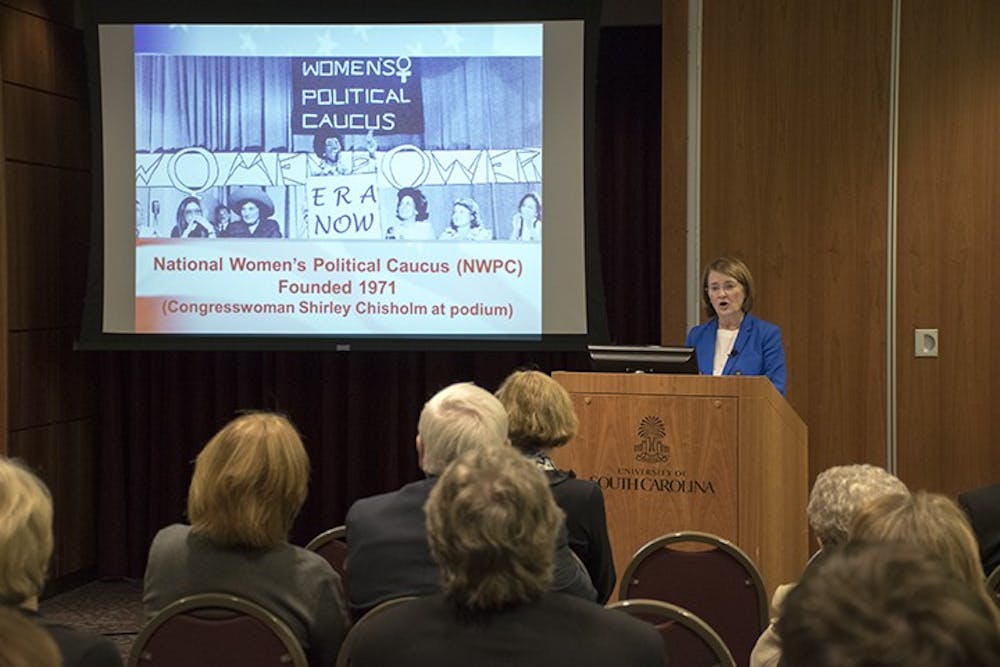The historical struggle between America's feminist women and conservative women is at the core of Marjorie Spruill's upcoming book, and she provided an up-close look at the decades-long conflict in a lecture at Capstone House on Tuesday evening.
Spruill, a noted historian who has taught at USC since 2004, kicked off a the USC History Center's new lecture series with a preview of her forthcoming book "Divided We Stand: Women's Rights, Family Values and the Polarization of American Politics." She discussed the rise of a conservative women's movement in response to the feminist movement, culminating in 1977's National Women's Conference and massive protests against it and the lasting effects on the American political system.
"The book started as an exploration of a major women's conference in 1977 and its political consequences," Spruill said. "It turned into a study of the rise of two women's movements in the '70s — a women's rights movement and a conservative women's movement that emerged to oppose it — and then to figuring out the implications of all that for the future direction of both the Democratic and Republican parties and for our national political culture."
Spruill said she was drawn to the subject because the 1977 conference is claimed by both sides as a victory, while many outside of the political realm have forgotten the event.
She also argued that many of the fights between the two women's movements laid the groundwork for the culture wars that still permeate American politics.
"So the National Women's Conference in Houston and the pro-family rally held in protest sent an unmistakable message to the world: American women were determined to play active roles in politics, but that we're highly divided in our goals," Spruill said. "It was a wake-up call for the nation. It was the first glimpse of the culture wars that would come to dominate our political culture."
Two students have taken a class with Spruill, fourth-year public relations student Caitlan Wyatt and graduate education student Sherilyn Phillips, were in attendance for the lecture. Both admire Spruill and were excited for the chance to hear her speak. were in attendance for the lecture. Both admire Spruill and were excited for the chance to hear her speak.
"I had Marjorie as a professor previously during my undergrad years and I loved the information that she taught us and admire her as a person," Phillips said. "Whenever I hear that she's doing something like this on campus I always like to come out and support her."
Wyatt was excited to hear about the premise of Spruill's book in the lecture.
"I have the professor and I really admire her, but I was very interested in seeing what the new book was about and what angle she was going to take," Wyatt said.
Both students also agreed with Spruill's assertion that the issues between women in the 1970s are still affecting American politics, including the 2016 presidential election.
"I think there is a lot of relevance," Wyatt said, "just because there are so many issues that haven't been resolved since then that I think have very much become an issue now because women's roles have expanded since the 1970s so they're demanding more things."
Phillips was intrigued by the connections Spruill made in her argument.
"Even to this day women experience sexism, especially within politics and the polarization between the political parties is, I would argue, at its absolute worst throughout American history," Phillips said, "and hearing that women's issues in the 1970s led to that, I think that's really interesting."
"Divided We Stand: Women's Rights, Family Values and the Polarization of American Politics" is set to be released in 2017 by Bloomsbury Press.

